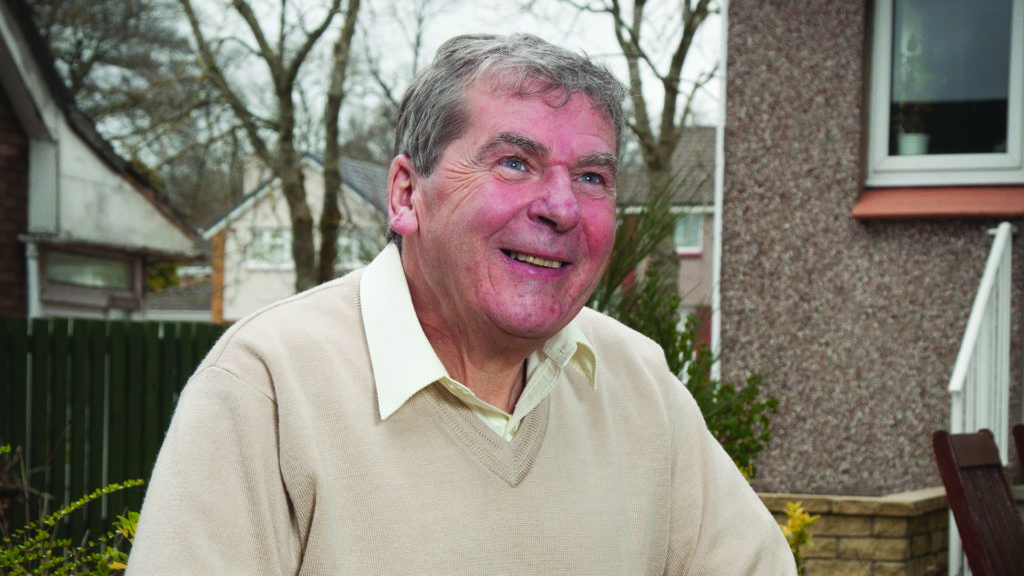Targeted therapy
Depending on the type of lung cancer you have, you may be able to have a targeted therapy to treat your lung cancer.
Targeted therapy drugs for non-small cell lung cancer come as a tablet, which you take by mouth, every day, at home. You should take them at the same time/s each day. You can keep taking a targeted therapy for as long as it keeps working for you.
There are various types of targeted therapies used to treat lung cancer. However, targeted therapies only work for some people with non-small cell lung cancer (NSCLC). Your healthcare team will have to do a biopsy to find out if a targeted therapy may be suitable for you.
The doctors are looking for specific characteristics that are different in some NSCLC cancer cells, and show up in the genes within the cells. These are called mutations, and the test is called a mutation test or molecular analysis.
Patients whose tumours test positive for these mutations, and who have been given matched targeted treatments, gain more benefit than from standard chemotherapy, a treatment they may also get at a later date.

I remember when the oncologist told me I had been matched up to a new drug and I would need to only take one tablet a day and would not need any chemo. I jumped up and gave that man a big hug!
Eric, living with lung cancer
Unfortunately, people without a mutation do not respond to targeted treatments as well, and therefore may not be offered it as a treatment option.
Common mutations for non-small cell lung cancer
- Epidermal growth factor receptor (EGFR)
- Anaplastic lymphoma kinase (ALK)
- Receptor tyrosine kinase (ROS).
These mutations lead to uncontrolled cell growth and tumour formation, and targeted therapy drugs aim to interrupt this.
Gwen’s story
I’m lucky, being ALK-positive, there’s lots of drugs and medications available. Since I’ve been on my new medication, I do my kick boxing. I’m back at work part time. Housework I try to avoid but I can do it!”
Gwen, living with lung cancer
Types of targeted therapies available
There are several types of targeted therapy licensed to treat lung cancer. Each drug has both a drug name and a brand or trade name. Drugs currently used to treat lung cancer in the UK are:
- Afatinib (brand name Giotrif®)
- Alectinib (brand name Alecensa®)
- Brigatinib (brand name Alunbrig®)
- Ceritinib (brand name Zykadia®)
- Crizotinib (brand name Xalkori®)
- Erlotinib (brand name Tarceva®)
- Gefitinib (brand name Iressa®)
- Nintedanib (brand name Vargatef®)
- Osimertinib (brand name Tagrisso®)
All these drugs belong to a group of drugs known as tyrosine kinase inhibitors (TKIs). They work by blocking certain chemical processes that tell cancer cells to grow, divide and spread.
Gefitinib, afatinib and osimertinib are EGFR inhibitors and afatinib, alectinib, crizotinib and ceritinib are ALK inhibitors. Crizotinib is also a ROS1 inhibitor.
Nintedanib blocks certain adenocarcinoma cell activity and is given in combination with a chemotherapy drug, docetaxel (brand name Taxotere®), after first line chemotherapy.
Related Stories
Side effects of targeted therapy
All forms of cancer treatment have side effects of one sort or another. Many people experience very few side effects with a targeted treatment. However, some people may develop severe side effects that require the treatment to be stopped or the dose lowered.
I was advised there may be some side effects with the targeted therapy I am taking. I have had a rash but have managed to cope with it by using creams my doctor has given me.
Margaret, living with lung cancer
Side effects can vary depending on which targeted therapy you are taking and can include:
- Constipation
- Depression
- Diarrhoea
- Dry, red or sore mouth
- Eyesight problems
- Fever
- Itching and/or dry skin
- Nausea
- Nosebleeds
- Rash, or acne-like skin conditions
- Reduced appetite and weight loss
- Tiredness.
How do I know if my treatment is working?
It can take some time to assess how targeted treatments are working, though you may be aware of changes or reduction in symptoms. When you start your treatment, you will get dates set for follow-up appointments. You may have a CT scan or X-ray to help assess what is happening.
If your symptoms have improved this may also suggest that the treatment is working, for example, less cough or breathlessness. If there is evidence that your cancer is responding to the targeted therapy then treatment will continue, as long as you are not having side effects which you can’t cope with.
What happens if my treatment stops working?
If there is evidence that your cancer is not responding then it is important to know this, so that a decision on an alternative treatment can be made. Sometimes there will be no change in the state of your tumour when the X-ray or scan has been done. This may seem disappointing but is a worthwhile response, especially if you feel better.
Even if the targeted therapy has not changed the size of the tumour, it may well have delayed the growth.
Over time, as with many drugs, targeted therapies can lose their effectiveness. The cancer cells can develop a resistance to the drugs.
Should this happen, other treatment options, including potentially another type of targeted therapy, may be available to you. Your cancer doctor will be able to tell you more about the possible treatments.




